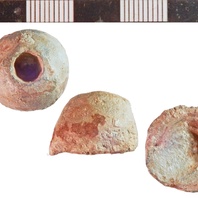
Viking Objects
Lead Weight (NLM-20FC79)
This cast lead weight has an empty apical hole which may have held something at some point. The mass may suggest this to have represented four Viking age units of 4.07gms, as used for silver bullion transactions. It is also possible that this object was used as a gaming piece and thus it could have served a dual purpose. Weights are an important form of evidence for Viking Age commerce and the use of standards across the different economic systems within which Vikings were integrated. Many of the weights discovered, particularly ones in Ireland and those of Arabic type, suggest that a standardized system of weights existed in some areas. These standard weights, alongside standard values of silver, are what allowed the bullion economy of Viking occupied areas to function. A bullion economy was a barter economy that relied on the exchange of set amounts of precious metal in various forms, such as arm-rings or coins, for tradable goods, such as food or textiles. Each merchant would have brought their own set of weights and scales to a transaction to make sure that the trade was conducted fairly.
Read More

Viking Names
Skardi
The Old Norse male personal name Skarði was originally a byname from Old Norse skarði ‘notch, hack’. A few instances are recorded as a personal name in Norway from the eleventh century onwards. It is also found as a byname in Norway and Iceland and in some Swedish runic inscriptions in the form skarþi. Skarði is possibly found in a Danish place-name and a strong form of the name Skarth appears in Denmark in the fifteenth century. The personal name may also be the first element in Scartho, Lincolnshire.
Read More
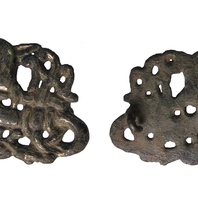
Viking Objects
Urnes-Style Brooch (LIN-F79A53)
This brooch has a gilded openwork zoomorphic design in the Urnes style. For more information on Scandinavian jewellery in England check out our blog: Brooches, Pendants and Pins: Scandinavian Dress Accessories in England.
Read More
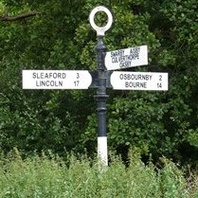
Viking Names
Aswarby
Aswarby, in the Aswardhurn Wapentake of Lincolnshire, is a compound name formed from the Old Norse male personal name Ásvarðr and Old Norse by ‘a farmstead, a village’. The construction of the place-name is identical with that of Aswardby, in the South Riding of Lindsey in Lincolnshire. Ásvarðr is also the first element in the district name, Aswardhurn, and presumably both the settlement and the district names refer to the same man. Aswarby is now a joint parish with Swarby.
Read More
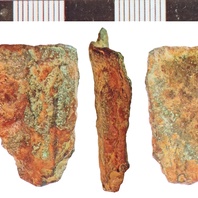
Viking Objects
Scabbard Chape (NLM-6C0242)
This possible scabbard chape fragment is very damaged but the reddish tint is often characteristic of Anglo-Scandinavian metalwork
Read More
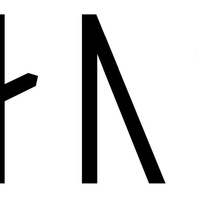
Viking Names
Gauti
Gauti and the related Gautr are short forms of names in Gaut- or -gautr, or an original byname meaning ‘man from Gautland’. This region comprises the provinces now known as Östergötland and Västergötland in southern Sweden, and is the homeland of the Geats in the Old English poem Beowulf. Gauti is recorded in several Swedish runic inscriptions. Gauti is the first element of the place-names Gautby, Lincolnshire and Goadby Marwood, Leicestershire.
Read More
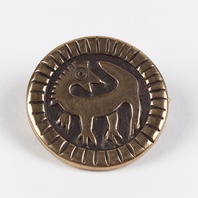
Viking Objects
Reproduction Brooch with Backwards-Facing Beast
A reproduction of a copper alloy disc brooch featuring a backwards-facing beast motif. This style of brooch would have been an everyday item rather than a high status one. For more information on Scandinavian jewellery in England check out our blog: Brooches, Pendants and Pins: Scandinavian Dress Accessories in England.
Read More
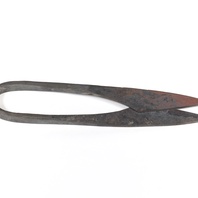
Viking Objects
Reproduction Shears
Shears were a common agricultural implement generally used to cut the wool off sheep but could also have been used as scissors in textile production. These are based on a number of originals uncovered during the excavations at Flixborough, Lincolnshire.
Read More
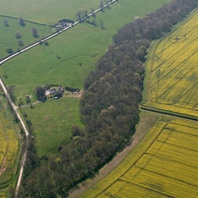
Viking Names
Beesby
Beesby, in the Bradley Haverstoe Wapentake of Lincolnshire, comes from a male personal name Besi and the Old Norse element by ‘a farmstead, a village’. The name Besi, which is recorded for Lincolnshire in Domesday Book, seems to be a Danelaw version of a Scandinavian name recorded in Old Danish as Bøsi. Today the name survives only in Beesby Farm and Beesby Hall, but remains of a deserted medieval village can be seen.
Read More
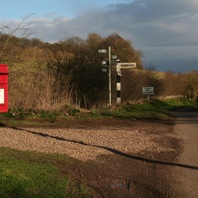
Viking Names
Skendleby
Skendleby, in the South Riding of Lindsey of Lincolnshire, is a name of uncertain origin. The first element is obscure, but is perhaps scenehelde ‘beautiful slope’ from Old English scene ‘bright, beautiful’ and helde ‘slope’. The second element of the place-name is Old Norse by ‘a farmstead, a village’.
